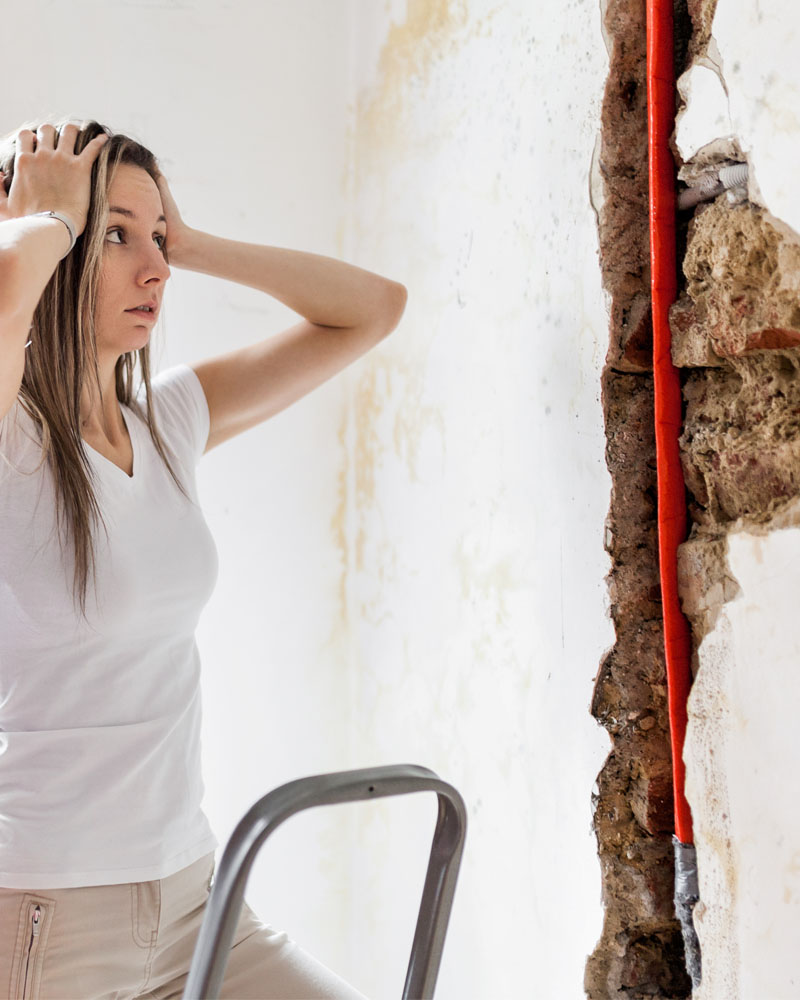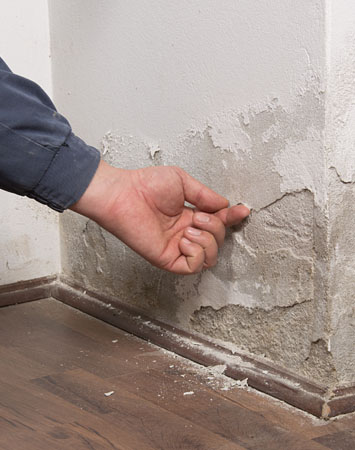We offer No Win No Fee service
Are you
a Tenant?
Are you living in a property or disrepair? Housing disrepair is where a tenant finds themselves living in a property which falls into an unsafe state. If your repair requests are being ignored you may be eligible to receive compensation.

You may be eligible to receive compensation
If you are a council or housing association tenant, there are very strict legal requirements to ensure your landlord keeps your property in a good state of repair. If you have reported disrepair to your landlord and they have failed to repair the property, our Lawyers can assist in ensuring the work is carried out and compensation is paid to you.
Landlords have a duty of care to their tenants, and to keep accommodation in an adequate state of repair. Tenants are able to make housing disrepair claims against landlords that fail to provide safe living standards for them.
Your landlord is required by law to ensure that a property meets health and safety standards. If these aren’t met, then you may be entitled to pursue a housing disrepair claim.
If a tenant has made improvements to the property, as in they’ve added a new feature that wasn’t there originally, then the landlord has no duty of care for this. The landlord is also not required to make improvements if they aren’t necessary.
In order for a housing disrepair claim to be successful, it needs to be proven that the landlord neglected their duty to provide adequate repairs or infrastructure to the property.
The Landlord
and Tenant Act 1985
A landlord’s main duties and responsibilities for housing are laid down in law through the Landlord and Tenant Act 1985. This outlines the key responsibilities of the landlord. If any of these have been broken, you might be entitled to make a housing disrepair claim against them. Landlords have a duty for the following;
Meeting fire safety regulations
Fixing any gas, electric or sewage leaks
Central heating / servicing your boiler
Providing adequate security for the property
External structures, such as gutters, must be kept clean and structurally sound
A property must be free of mould and damp
Common issues our client’s
regularly suffer from are:
Asbestos
Unsafe Electrics
Broken or problematic boiler issues
Structural cracks
Rising Damp and mould
Unsafe ceilings and walls or windows
Vermin infestation
Unsafe staircases
Lack of running water
Unsafe tiles, missing or loose tiles
Flooding or Leaking Water inside and outside

To start your Claim
The first step is to ensure you have reported the matter to your local Council. If they do not respond or arrange the necessary repairs in a reasonable time then you may be entitled to compensation.
We can take the full details of your case and immediately begin the process to ensure repairs are carried out and compensation is secured in your favor.
We can legally ensure repairs are carried out to the issues that the surveyor reports are the issue.
Do not fall into arrears by not paying your rent as this could give the Council the strength to make a claim against you for breaching your Tenancy Agreement.
If you have moved on from the property which required repairs unfortunately it will not be possible to make a claim. You must still be living in the property.
We act on a No Win No Fee Agreement and can assist you in taking the stress out of speeding up your outstanding repair work and seeking compensation on your behalf.
Our team of professional, experienced Lawyers are here to make a stress free claim on your behalf. Please call ABS Lawyers on 0151 440 2440 for more information.
Criteria
If you meet this criteria the likelihood is that you will be entitled to compensation:
- The repair or fault must have been reported to the Council
- The property must be in England and Wales
- You must not have any other solicitors instructed
- You must not have any rent arrears
- You would not be likely to move in the next 9-12 months of starting your claim
- Council property only no private tenancy agreements with private Landlords
- If you have a joint tenancy agreement then all tenants would be required to sign the documentation
- A copy of your tenancy agreement will be required at the outset of your claim
- We require the name of your local Council
- We need details of disrepair i.e. rooms affected and photos of damage and date when the issue was reported and by how this was reported
- Do they have a tumble dryer and is property vented as this is a potential cause of damp
- How many bedrooms in property and how many people live in house
- Any animals – if so how many and what animals
Frequently Asked Questions

How long do I have to claim?
You have a period of 6 years to make a claim. If the matter has resulted in health issues that could potentially bring a personal injury claim then the limitation period would be 3 years.
Who can I claim against?
The Council or Local Housing Association.
Could I be evicted if I make a claim?
The Council or Housing Association will have no legal reason to evict you for making a housing disrepair claim.
How much compensation will I receive?
We calculate the compensation you will be eligible to based on a number of factors detailed below:
- How many people have been affected by the disrepair
- The length of time the repairs have been outstanding
- The severity of the outstanding repairs
- Impact the outstanding repairs have had on you


